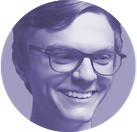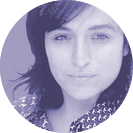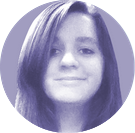Today, the Internet we love and treasure is facing serious threats. Issues like mass surveillance and walled gardens, along with calls to weaken online security, increasingly endanger the Internet's openness. Most recently, we saw the FBI ask Apple to circumvent their own devices' security protections, setting a dangerous precedent that threatens consumers' security. And in many parts of the world, especially emerging markets, inclusion and equality online aren't guaranteed.
To address these threats, the Internet needs a new breed of advocate: individuals with both a technologist's savvy and an activist's zeal. We need advocates who can stand up for critical issues like privacy, inclusion, and literacy online, and ensure the Internet remains a public resource.
APPLY TODAY TO BE A FORD-MOZILLA OPEN WEB FELLOW
In 2015, Mozilla and the Ford Foundation launched the Open Web Fellows program to foster this type of advocate. We built an international leadership initiative to embed bright and passionate technology talent at leading civil society organizations. It's a necessary step, and a topic we discussed in the Washington Post when the fellowship debuted.
Says Jenny Toomey, Ford Foundation's Director of Internet Freedom:
"Technology is transforming every aspect of our world. But there aren't enough technologists who are prepared to lend their vision to the public sector and make sure we're building the kind of critical systems that can protect and empower us all. We need to make sure that the rights we have fought so hard to achieve are upheld and strengthened in the digital space. And we need to make sure that the people who are working to challenge inequality have the tools and infrastructure they need to do it well. That means having a diverse, creative cohort of public interest technologists, designers, and engineers working within civil society and governments."
Now, almost 12 months later, we're accepting applications for the second cohort of Open Web Fellows. This upcoming cohort of fellows will embed at civil society organizations on four continents.
We're also celebrating the successes of our 2015 fellows. They've accomplished amazing things, which we share below.
To paint a clear picture of the Fellowship program and its impact, we asked our 2015 fellows to explain in their own words. Below, you'll hear from Andrea Del Rio at Association for Progressive Communications (APC); Tennyson Holloway at Public Knowledge; Paola Villarreal at ACLU Massachusetts; Gem Barrett at Open Technology Institute (OTI); Drew Wilson at Free Press; and Tim Sammut at Amnesty International.
What does an Open Web Fellow look like?
There's no formula or singular mold: Fellows are data architects and women's rights activists, developers and designers. They hail from four countries and various points in their careers. But they share a common belief: The world can be made a better place by leveraging the open Internet.
"Open Web Fellows are very talented technical people, but also have a sense of social duty. That's what sets us apart." — Andrea Del Rio
"We all share a core understanding that an open Internet is important to modern society, and it needs to be protected." — Tennyson Holloway
"We all come at the open Web from different angles. We're passionate about one topic, but come at it from a range of backgrounds with a holistic approach." — Gem Barrett
What does an Open Web Fellow do?
Fellows dream up and create projects at the intersection of the Internet and civil society. They write code, develop apps, and pen blog posts. They host podcasts, attend conferences, and lead workshops. More broadly, fellows engage with the most important issues facing the Internet today: surveillance, inclusion, equality. Fellows work across organizations, borders, and time zones, networking and collaborating with like-minded technologists and do-gooders.
"We're pioneers. We're technologists working for nonprofits doing relevant work." — Andrea Del Rio
"It's about data and open source tools and advocacy. It's about benefiting from the open Web." — Paola Villarreal
"It's about making sure the Internet remains open and accessible for everyone. It's also about expanding freedoms online to more people globally." — Tim Sammut
"Fellows are interested in social change activities in the long-term." — Drew Wilson
Why apply?
Open Web Fellows have the opportunity to fight on the front lines of the open Internet movement. They help some of the world's most established NGOs and civil society organizations navigate the vibrant and increasingly important realm of Internet advocacy. And fellows build valuable relationships with like-minded advocates.
"Having access to all these tools, information, support, people, and resources is a life-changing experience. The work I have been doing during this fellowship has had, and will have, an impact." — Paola Villarreal
"You're part of a much larger movement, and that's definitely rewarding." — Tennyson Holloway
"If someone is passionate about improving the world, and wants a springboard into doing that as a career, this is for them." — Gem Barrett
"One of the best things about the fellowship has been the people I met in the Internet freedom community." — Tim Sammut
What are the host organizations?
Key to the Open Web Fellow program are our host organizations: leading nonprofits around the globe devoted to improving the Internet and the lives of everyone it touches. Host organizations have diverse ambits, from law and human rights to gender equality and press freedom.
Our 2015 host organizations are the American Civil Liberties Union (ACLU) Massachusetts, Amnesty International, Association for Progressive Communications (APC), Free Press, Open Technology Institute (OTI), and Public Knowledge.
Our 2016 host organizations are Centre for Intellectual Property and Information Technology Law, The Citizen Lab at Munk School of Global Affairs, ColorOfChange.org, Data & Society, Derechos Digitales, European Digital Rights (EDRi), Freedom of the Press Foundation, and Privacy International.
"The Open Web Fellows Program connects the incredible wealth of tech talent with the justice-minded organizations that so badly need their skills. This is not just about bringing technologists into civil society organizations and government, but about strengthening critical institutions and helping them rise to meet the challenges of the digital age — some of which haven't even been identified yet." — Jenny Toomey, Director of Internet Freedom, Ford Foundation
Our 2015 Fellows

Andrea Del Rio,
Association for Progressive Communications (APC)
Andrea Del Rio is embedded at APC, the South Africa-based nonprofit expanding women's rights and gender equality online with focus on the global south. Andrea's digital savvy allows APC to advance this mission and present their work in a more dynamic and impactful way. Andrea is crafting an interactive platform for APC's "Feminist Principles of the Internet," a treatise bridging the gap between the feminist movement and the Internet rights movement. She is transforming the static document into an interactive community where activists can talk and share resources. When complete, the platform will live at http://feministinternet.net/.
"I try to make a difference on the user interface."
In November 2015, Andrea led a gender equality session at MozFest, Mozilla's annual celebration of the open Internet. The session — "A Feminist Internet in 140 Characters" — brought together diverse makers, designers, and technologists who authored a list of open Web feminist principles.
"The feminist principles of the Internet should be relevant to anyone who loves the Internet and is interested in gender equality."
During her tenure as a fellow, Andrea has traveled to Malaysia, the Philippines, Mexico, the U.S., the UK, and South Africa.

Tennyson Holloway,
Public Knowledge
Tennyson works alongside Public Knowledge, the advocacy organization based in Washington, DC. Its scope: issues at the intersection of public interest and technology. Public Knowledge explores and comments on troubling corporate mergers; advocates for issues like net neutrality; and upholds consumer protections. It's here that Tennyson functions as a sorely-needed technologist among lawyers and policy experts.
Tennyson is also devoted to a series of self-directed projects. He created the SMS Vote Updater, a tool for subscribing to and monitoring legislators' voting. Users text their zip code to the service and quickly receive a list of relevant legislators. Users then subscribe to select policymakers — and when policymakers vote on a bill in Congress, users get a notification detailing the vote and bill.
"I was really excited to build this. I like the idea of increasing access. You can keep an eye on your legislator."
Tennyson is also building whatcanidofortheinternet.org, a collection of resources and stories that detail how individuals can contribute to the Internet. The site motivates others to improve the Internet, and serves as a friendly gateway to the open Internet movement.
Alongside Fellows Andrea Del Rio and Drew Wilson, Tennyson produces the NetPosi podcast. The trio interviews technologists making a mark in the world of activism (or vice versa). Guests include Cory Doctorow and Wendy Seltzer.
"It's a podcast about the intersection of activism and technology."

Paola Villarreal,
ACLU Massachusetts
Paola is embedded at ACLU Massachusetts, a staple in the fight for individual rights and liberties. Here, Paola brings a technologist's savvy (16 years of IT experience) to the world of social justice. She writes code and analyzes gigabits of data to battle inequality.
Paola's capstone work is Data for Justice, an ambitious initiative that connects activists with data so they can drive change in their communities.
"It empowers activists and advocates to make data-driven decisions."
Specifically, Paola's project analyzes data from the Boston Police Department and several other sources, spotlighting discriminatory practices. Findings are then showcased using a data visualization framework, titled Augmented Narrative Toolkit, developed explicitly for this project. And in true open source form, the Data for Justice project can be adapted to other cities around the world.
Paola has also traveled extensively as an Open Web Fellow, plugging into pockets of the open Internet movement around the world. She has attended and spoke at open source and open government gatherings in Mexico City, London, Hamburg, Harvard University, and beyond.

Gem Barrett,
Open Technology Institute (OTI)
Gem works with Open Technology Institute (OTI), an arm of New America focusing on open source innovation. It's here that Gem writes, programs, designs, and speaks. Specifically, Gem is helping OTI build out their transparency and open data initiatives.
"An open Web fellow gets embedded into an organization and offers their unique skills in order to promote the open Web."
Gem is also committed to a range of satellite projects. She's penned articles about making the open source ecosystem more inclusive (here and here), and planned events that explore the intersection of gaming and social justice.
"You have the freedom to explore other opportunities outside of the organization for promoting your passion."

Drew Wilson,
Free Press
Drew works with Free Press, a nonprofit that advocates for a healthy and free fourth estate. Here, Drew has helped shape Internet2016, an initiative to inject net policy issues into the 2016 election discourse. The approach is decidedly grassroots: Internet 2016 galvanizes Internet advocates to dog politicians on topics like mass surveillance, encryption, and access. Drew lent both his tech and advocacy acumen, building the web page and consulting on campaign content.
Drew has also tackled a number of personal projects. He co-hosts the NetPosi podcast alongside fellows Andrea and Tennyson.
"NetPosi shares stories from people who do interesting work at the intersection of social change and technology."
Drew curates Tools for Activism, a resource that lists digital tools for activists and technologists. It recently snagged front-page real estate on GitHub. Drew also built a couple of experimental web-tools-for-activism prototypes: a meme generator targeting 2016 presidential candidates (the goal: "empower people to be more politically engaged online"), and Printernet, a web application that assists small NGOs with print mailings.

Tim Sammut,
Amnesty International
Amnesty International stands up for human rights around the globe. As an Open Web Fellow, Tim furthers this mission in a 21st-century fashion. Currently, Tim is helping Amnesty pilot GlobaLeaks, and open source platform for the safer submission of sensitive information.
Tim is also building the Secure Communications Framework, a reference model for human rights researchers and activists seeking the right tools and practices for sensitive work. It's a matrix for identifying safer, more secure, and reliable channels for carrying out work in dangerous regions. The framework can help people maintain privacy and avoid arrest, detention, or worse.
"[It's for] a researcher that may be an expert in their field with first-hand knowledge of the challenges that surround them, but is uncertain which digital tools and practices will enable their work without simultaneously undermining their safety."


0 comments:
Post a Comment